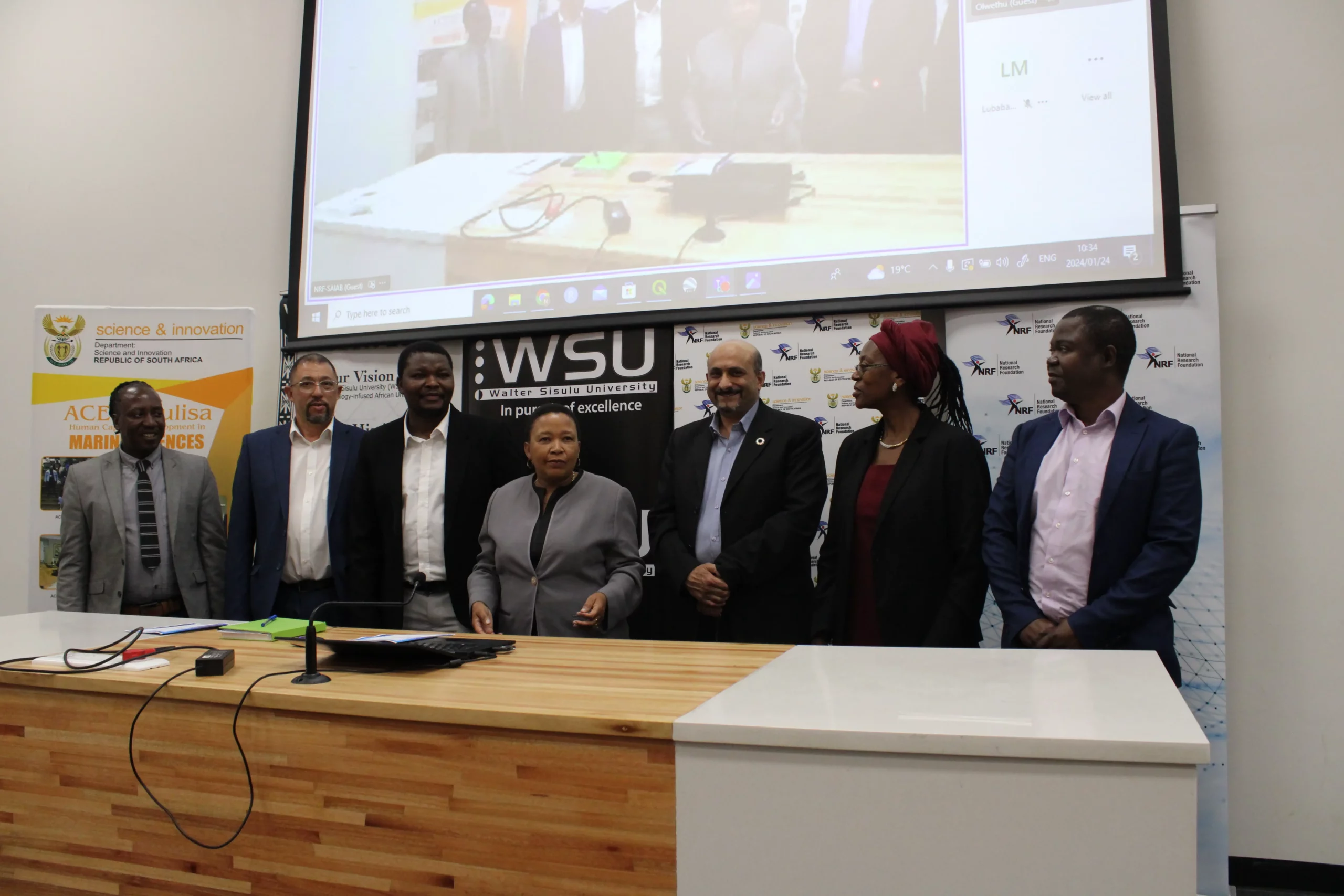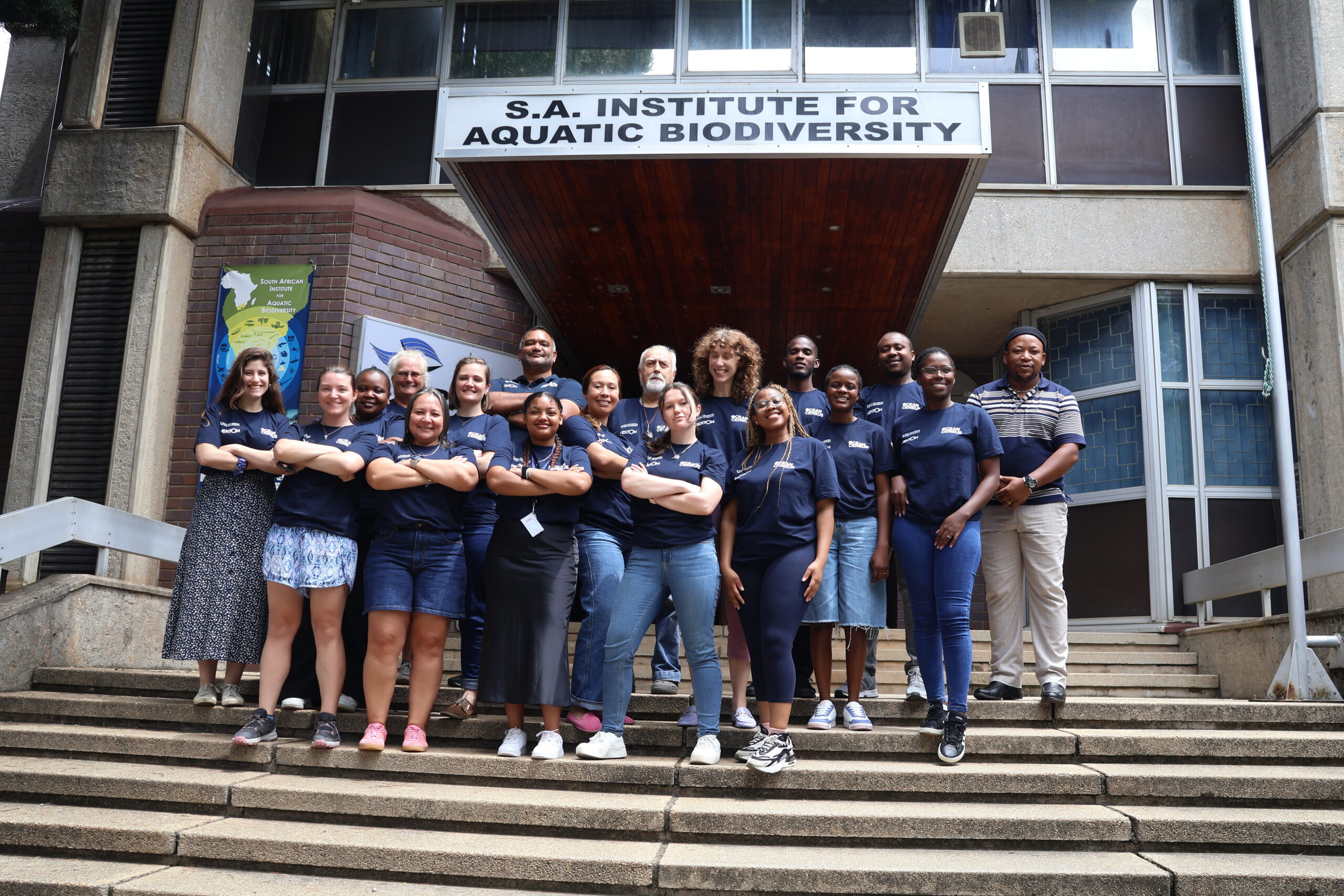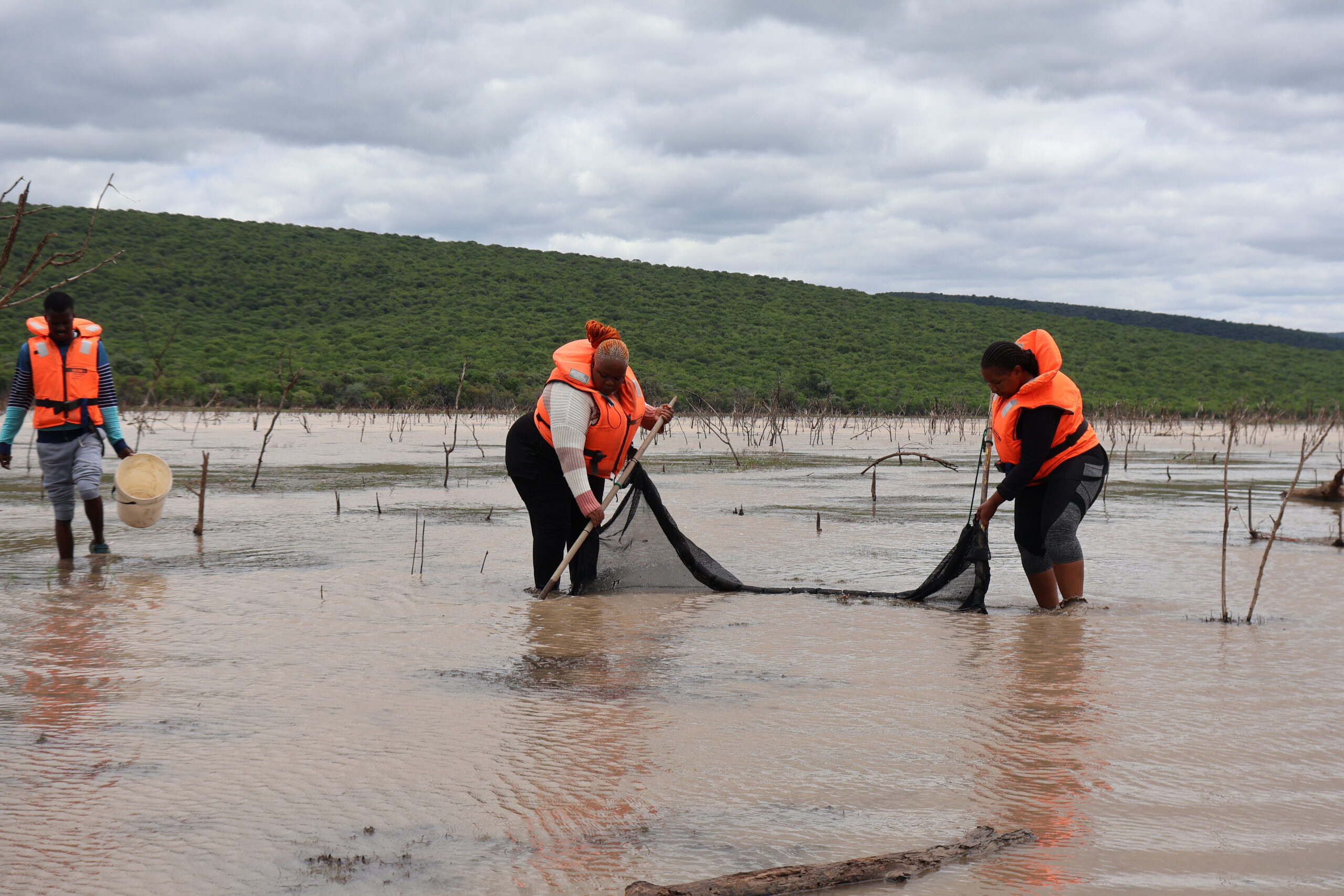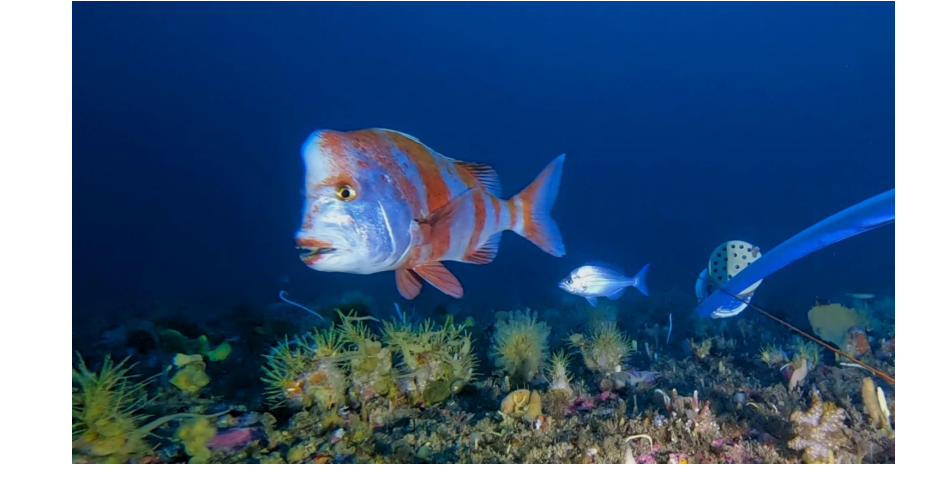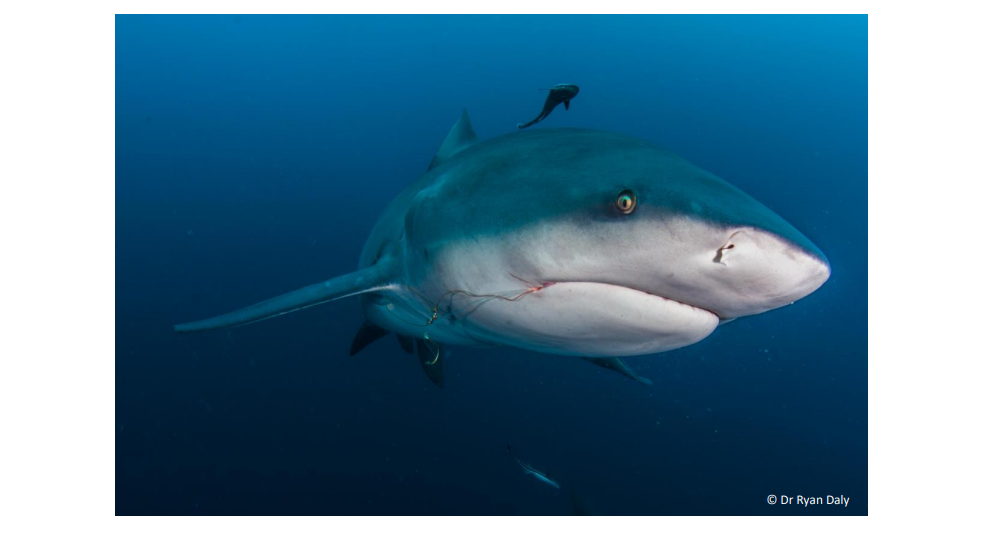– Lucky Dlamini (NRF-SAIAB Communications and Stakeholder Relations Manager)
In a ground-breaking initiative to advance marine research with a profound societal impact in South Africa, the Department of Science and Innovation (DSI) and the National Research Foundation (NRF)–South African Institute for Aquatic Biodiversity (NRF-SAIAB) have been fostering competitive, multidisciplinary and multi-institutional marine research on the east coast. The focus has been on enhancing marine sciences capacity. A significant achievement has been realised through the African Coelacanth Ecosystem Programme (ACEP), establishing collaboration with historically disadvantaged higher education institutions (HDIs): Walter Sisulu University (WSU), University of Zululand (UNIZULU), University of the Western Cape (UWC), and the University of Fort Hare (UFH).
The ACEP’s overarching goal is to drive sustainable development in the Blue Economy, benefitting all South Africans. To translate scientific research into societal impact, the NRF-SAIAB’s ACEP, with funding from the DSI and the NRF, has successfully established four state-of-the-art research laboratories at the mentioned HDIs, known as the ‘Joint Marine Laboratories’ (JMLs).
Dr. Albert Chakona, Acting Managing Director at NRF-SAIAB, explained that the JML programme’s mission is to bridge resource gaps and create opportunities for success by providing innovative solutions and establishing modern research platforms at these universities. The culmination of this vision, initiated in 2020, resulted in the realisation of joint marine labs at the four universities involved in the programme.
Four years later, the dream has come to fruition, with the fully constructed and launched labs fostering a thriving community driven by a collective passion for education, knowledge expansion, innovation, and inclusivity in academia, as emphasised by Dr. Chakona.
Walter Sisulu University (WSU) – Rural Coastal Sustainability Laboratory
The culmination of the JML programme occurred on January 24, 2024, at Walter Sisulu University’s (WSU) Mthatha campus, where the Rural Coastal Sustainability Laboratory was launched. This laboratory, designed to address African challenges faced by rural communities, focuses on food security and climate change adaptation.
Dr. Thembinkosi Dlaza, Biological & Environmental Sciences Lecturer and Principal Investigator of the laboratory said: “Adaptation to climate change will be achieved through stress response experiments to detect the survival abilities of different marine species under projected seawater condition changes. Known as ecophysiology, the experiments will enable WSU to select the most resistant species as sentinel for environmental change monitoring programs along the Wild Coast.” [Read more here]
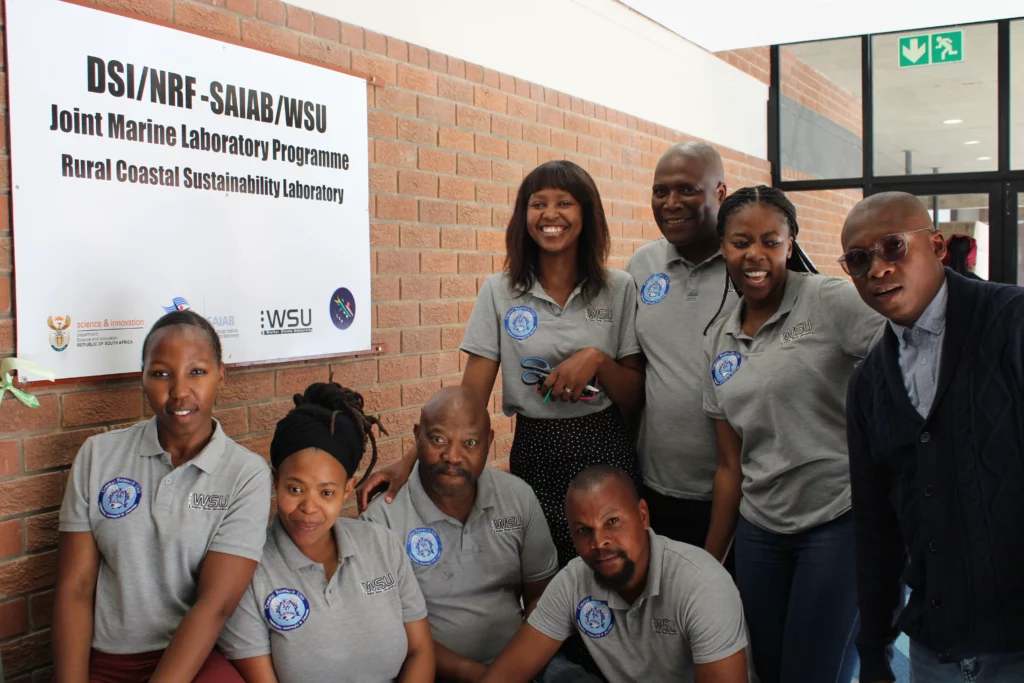
The other three laboratories, launched in 2022 and 2023, are located within the science campuses of their respective universities, each dedicated to specialised research addressing key challenges such as marine pollution.
University of Zululand (UNIZULU) – Laboratory for Marine and Estuarine Ecotoxicology
While the WSU laboratory will focus on coastal livelihoods research, the UNIZULU laboratory specialises in marine and estuarine ecotoxicology. The laboratory, equipped with state-of-the-art tools aims to quantify metal concentrations in coastal environments and organisms. Dr. Ntuthuko Masikane, Principal Investigator at UNIZULU explained that the laboratory will ensure the relevance of research for a better society. “It not only prioritises impactful research but also serves as a conduit for UNIZULU postgraduate students, fostering their scholarly development and exposure to advanced research equipment,” he said. [Read more here]
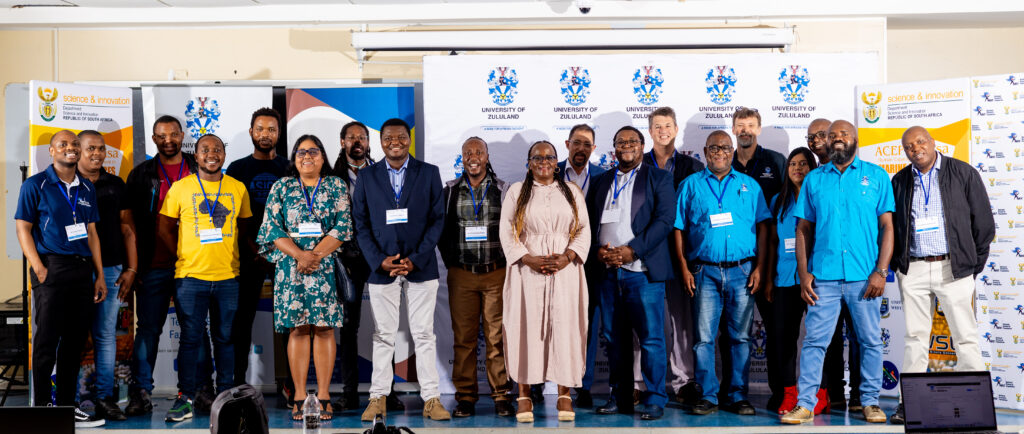
University of the Western Cape (UWC) – Laboratory for Microplastics and Coastal Research
The UWC laboratory aims to contribute to understanding microplastics for better ecosystems. The laboratory will contribute knowledge to the achieving of various United Nations’ Sustainable Development Goals (SDGs), including Goal 3 (Good health and well-being), Goal 6 (Clean water and Sanitation), Goal 13 (Climate Action), Goal 14 (Life below water) and Goal 15 (Life on land). Professor Anusha Rajkaran is the Principal Investigator of this laboratory and her work on establishing the health of mangrove forests has led to new research emerging about the impact of microplastics on coastal environments. [Read more here]
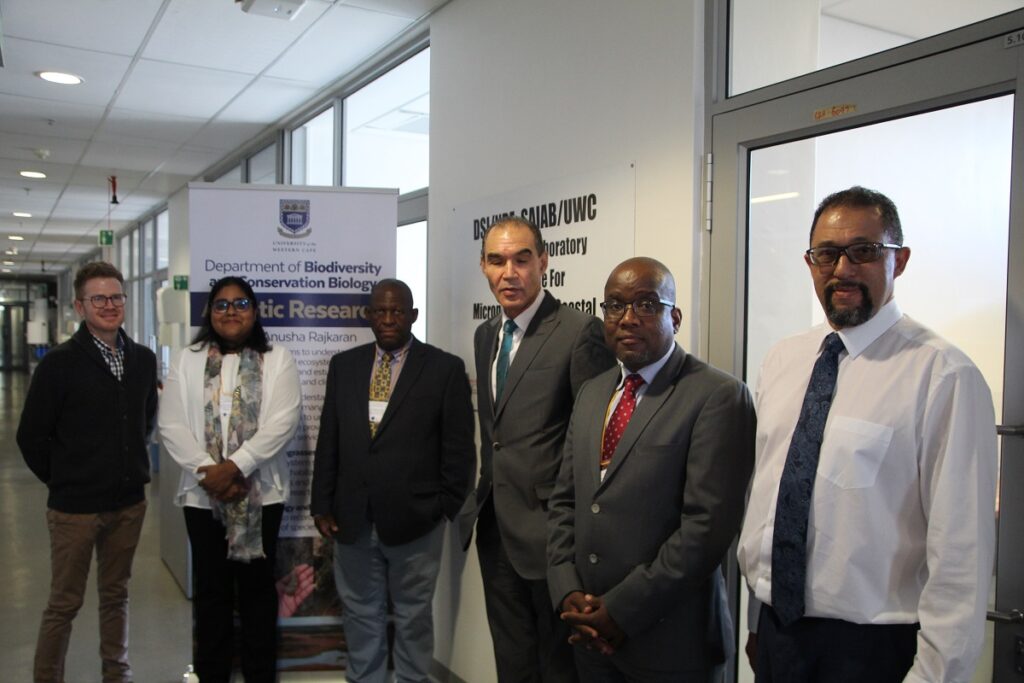
University of Fort Hare (UFH) – Bio-economy & Bio-discovery Laboratory
The UFH Bio-economy & Bio-discovery Laboratory explores marine resources for potential applications against diseases like diabetes and cancer, for the marine pharmaceutical economy. Highlighting the significance and benefits of the laboratory, Professor Graeme Bradley, UFH Dean of Science and Agriculture said: “The South African oceans provide enormous potential for economic development to the benefit of our citizens and having the facilities and human capital to harness the oceans in a sustainable manner is critical to the sustainable use of this precious resource.” According to Prof Bradley, the laboratory aims to identify novel compounds not yet discovered in our oceans but also to develop human capital in this field, specifically black and female scientists. [Read more here]
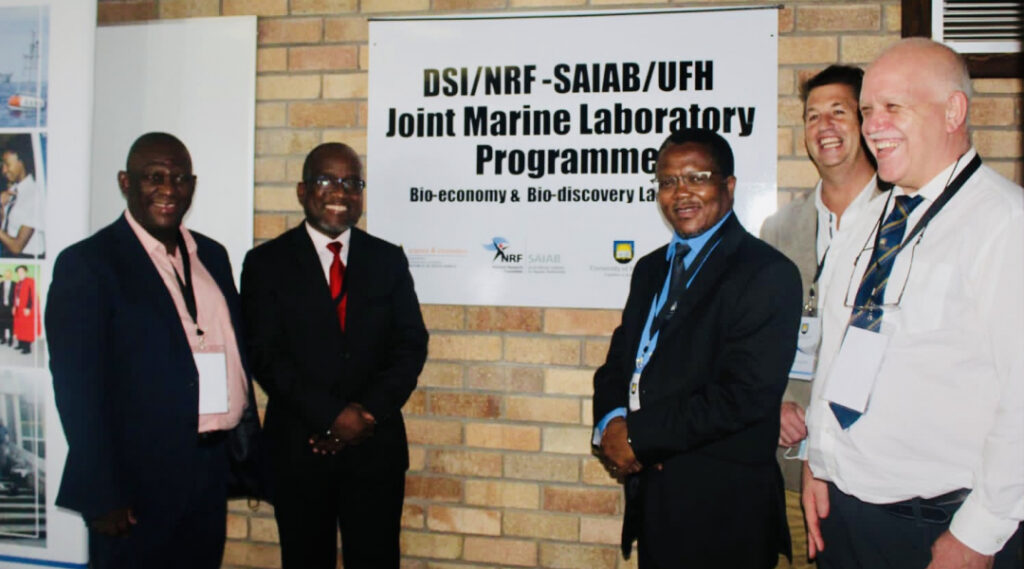
These four institutions form effective JML partners, collaborating on research and training initiatives for marine science students. Dr. Chakona expresses excitement about the transformative journey and anticipates ground-breaking contributions that reshape understanding and promote effective stewardship of oceans. Emphasising the importance of collaboration, he highlights that “collaboration amplifies impact” among historically disadvantaged institutions.
